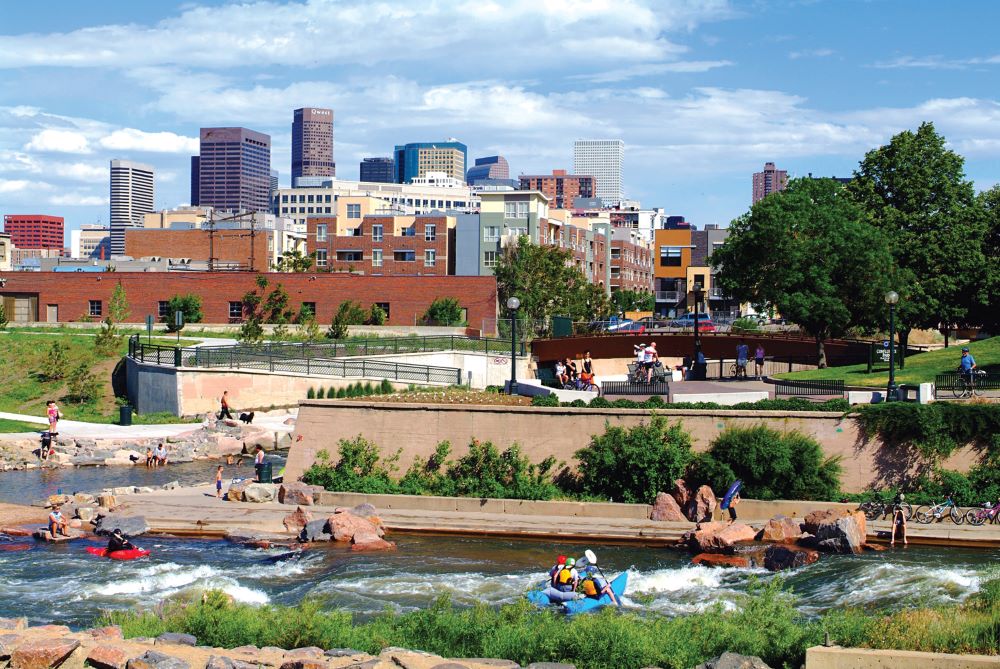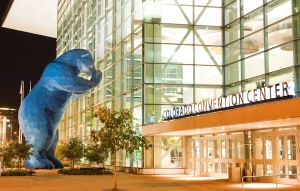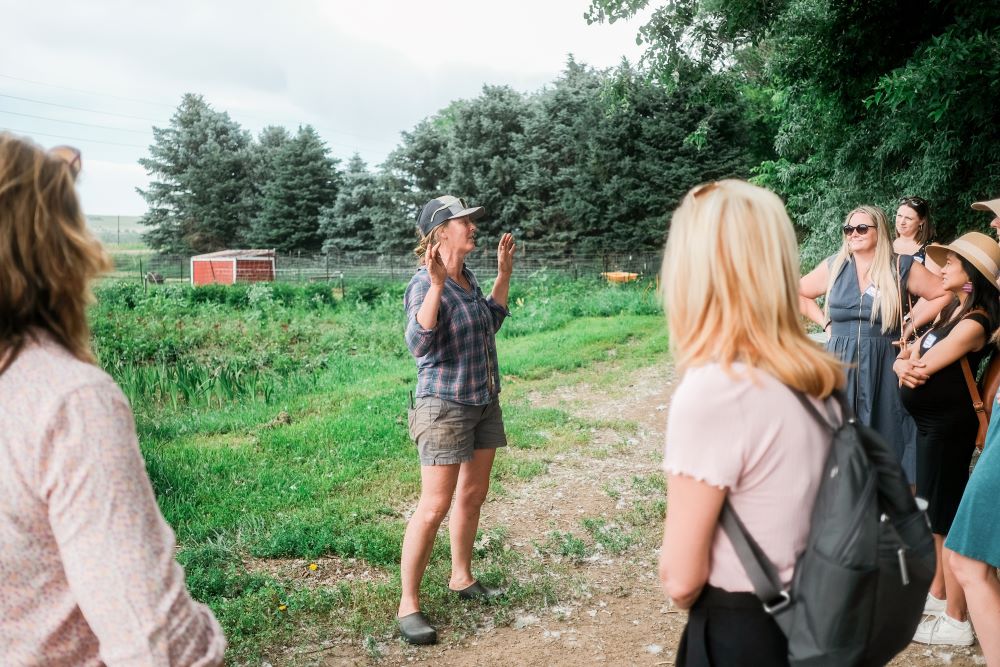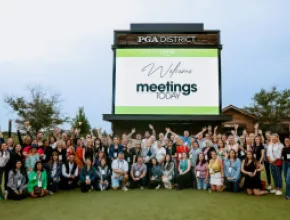Sustainability is no longer a “buzz word” in conversations or a trending topic for meeting planners to take into consideration when organizing events. Instead, sustainability has become a staple throughout the planning process, and attendees are no longer asking for it—they’re expecting it.
“Research shows that sustainability has become a key priority for leisure travelers as well as conference attendees,” said Tiffany Eck, associate director of destination services at VISIT DENVER. “Meeting planners are starting to rethink their sustainable footprint to meet the demand from their attendees.”
As that demand continues to increase, destinations are doing what they can to keep up, and cities across Colorado are setting a strong example of environmentally friendly approaches to meetings and events.
Take a look at some sustainable offerings and initiatives in Denver, Boulder and Colorado Springs.
Denver
Recently, the Events Industry Council (EIC) announced that VISIT DENVER has achieved platinum-level certification for the EIC Sustainable Event Standards, which are specific standards for environmental and social responsibility within the events industry. Denver is the first destination to achieve the highest level of certification.

“VISIT DENVER has been an early adopter of sustainable practices, and prioritizing the environment has been a fabric of our culture for over a decade,” Eck said. “Prior to the EIC Sustainable Event Standards, the industry had the APEX/ASTM Sustainable Event Standards. VISIT DENVER was the first destination in the world to achieve Level One certification in 2013, as well as Level Two certification in 2015, under these standards.”
The destination, already a clear leader in sustainability, continues to take steps toward becoming an even more environmentally friendly choice for meeting planners.
The recently completed Colorado Convention Center (CCC) Expansion Project, which wrapped at the end of 2023, was designed and constructed to meet LEED Gold-certification requirements, Eck said, and the CCC is expected to receive this certification sometime this year. Sustainability features of the expansion project include water reduction, optimized energy performance, lighting and thermal comfort, sustainable materials and more.
“The CCC strives to erase the line between a ‘regular event’ and a ‘green event’ by making all events held at the convention center sustainable,” Eck said.
[Related: 10 Tips to Produce a Sustainable Event Without Breaking Your Budget]
The CCC and its exclusive catering partner, Sodexo Live!, manage and operate Blue Bear Farm, a 5,000-square-foot farm on-property that grows more than 1,800 pounds of fresh fruits and vegetables annually. The CCC has also recently partnered with AQ Green to provide a carbon offset program for clients and attendees to help measure and reduce their travel impacts while attending an event at the convention center.

“Delivering a sustainable event requires collaboration between the meeting planners, their host facility and their vendors,” Eck said. “The key to telling your sustainability story is data collection, metrics and benchmarking. Clients are starting to ask their vendors and partners for more data in order to track their sustainable footprint, creating benchmarks year-over-year that initiate the development of their own sustainability story to their stakeholders. Widespread encouragement for sustainable travel and events is helping to create transparency and accountability for the hospitality industry.”
One way VISIT DENVER encourages sustainable travel and events is through its Green Vendor Directory, an online resource for groups to find environmentally friendly restaurants, hotels, event facilities and more around the metro area. Planners can filter the types of businesses they are looking for and easily access information about their sustainable practices, certifications and initiatives.
“VISIT DENVER has also developed a comprehensive list of Voluntourism opportunities for meeting planners to review when looking to host a CSR opportunity in Denver,” Eck said. “Some of the more popular opportunities are building bikes for children with Wish for Wheels, assembling Kynd Kits or organizing blood drives with Vitalant.”
Sustainable Stays in Denver

What are three sustainable hotel and lodging options for groups?
1. Populus at Civic Center Park: The country's first carbon positive hotel plans to open in summer 2024. The 265-room, 13-story hotel will feature flexible event spaces, a ground floor restaurant and a signature rooftop bar and restaurant. The hotel will be carbon positive thanks to the sustainable design and construction as well as substantial ecological efforts offsite, including an initial commitment to planting over 70,000 trees in Gunnison, Colorado, last year.
2. Embassy Suites by Hilton Denver Downtown Convention Center: Recognized by the U.S. Green Building Council for its sustainable design and construction. It is the first Embassy Suites awarded with the LEED Silver Certification and the first LEED-certified hotel in Denver. The property is also dedicated to energy and water conservation, and sustainable products were incorporated in many areas of design such as bamboo paneling, floor tiles and employee uniforms consisting of recycled materials.
3. The Source Hotel + Market Hall: This hotel also holds a LEED certification. The property was constructed with low-emitting materials to reduce VOC off-gassing and provide superior indoor air quality throughout the building. Materials with recycled content were given preference over virgin materials, as were products extracted and manufactured within 500 miles of The Source Hotel. The hotel has also installed high-efficiency flow and flush fixtures to reduce water consumption.
For more sustainable lodging options, check out VISIT DENVER’s Hotel Sustainability Reports
Colorado Springs
Every year, more than 24 million people visit Colorado Springs, and according to a recent Visit Colorado Springs blog post, 68% of those visitors appreciate taking advantage of the destination’s outdoor opportunities, from leisure to business travelers alike.

As a Leave No Trace partner, Visit Colorado Springs encourages visitors to follow the Leave No Trace principles to help protect the destination’s outdoor environment and minimize their environmental impacts. From researching trails ahead of time and sticking to designated paths to leaving the environment as you found it, the principles serve as guidelines for visitors to better understand how to be a “good steward” when visiting Colorado Springs.

The CVB also encourages groups to participate in ecotourism activities when they’re in town for meetings and events. Some activities include renting e-bikes from PikeRide as a sustainable transportation option, volunteering with Trails & Open Spaces Coalition to help take care of the city’s trails and parks, and supporting Cheyenne Mountain Zoo’s wildlife conservation and sustainability initiatives.
Groups can also visit the summit of Pikes Peak to explore the state-of-the-art Pikes Peak Summit Visitor Center, a LEED Silver-certified facility offering interpretive exhibits that share the history of the mountain. The center is the most sustainable high-altitude structure in the country, sitting 14,115 feet above sea level.
For a sustainable lodging option, The Broadmoor consistently works toward lessening the iconic resort’s carbon footprint.
[Related: How New Orleans Celebrates Sustainably, From Culture to Coastline]
A state-of-the-art energy management system controls heating, lighting, cooling systems and space temperatures throughout the resort. The Broadmoor also used native grasses in place of over 500 acres of high-maintenance turf grass on its golf course, and for meetings and events, provides recycling bins throughout event spaces, water bottle-filling stations and a recycling crate during load-in and load-out.
Cheyenne Mountain Resort is another sustainable lodging option for groups and has initiatives surrounding energy efficiency, renewable energy, water conservation and waste diversion. The resort also offers a recycling program for meetings, water bottle refill stations and has a seasonal chef’s garden.
Boulder
Boulder County is another leading sustainable destination in Colorado, recognized by the CDP, a global environmental reporting organization, for its environmental actions. The destination made the CDP’s Cities A List in 2022 and 2023, receiving the CDP’s highest score of an A, which requires a city-wide emissions inventory, a published climate action plan, completion of a climate risk and vulnerability assessment, the setting of a climate adaptation goal to demonstrate how the destination will adapt to climate hazards and more.
“In Boulder, sustainability is just a part of who we are,” said Fig Wirkler, director of sales at Visit Boulder. “Our ethos is community, sustainability and education. That’s Boulder in a nutshell.”
The city’s Universal Zero Waste Ordinance requires properties in Boulder to have separate compost, recycling and trash services, a waste diversion effort that keeps food and kitchen scraps away from landfills.
“That was our initiative as a city, to reduce the amount of waste we produce through our businesses,” Wirkler added. “Downtown Boulder has more than 250 local mom-and-pop shops ranging from retail to restaurants, and most offer hyperlocal and sustainable products.”

For groups looking to give back to the Boulder environment, City of Boulder Open Space & Mountain Parks offers a number of ongoing volunteer programs in which groups can help with everything from forest restoration and seed collection to farming and trail repair.
“They are very well organized and have several different volunteer programs, cleaning up the trails, picking invasive weeds in the area,” Wirkler said. “Boulder is surrounded by 42,000 acres of open space, and because we’re surrounded by all this open space, there’s no sprawl. It’s really important that we keep that land as preserved as possible.”
[Related: Three Colorado Cities for Meetings Immersed in Art and History]
Earlier this year, Embassy Suites Boulder and Hilton Garden Inn Boulder unveiled green-focused initiatives committed to sustainability and conservation. At the forefront of these initiatives is the introduction of the BioGreen BG3 Composter, “a cutting-edge technology designed to revolutionize waste management” by reducing organic waste and turning it into nutrient-rich compost to be used in landscaping and gardening efforts.
“Embassy Suites has a meeting impact calculator, so when groups are at their property, they can calculate their impact on the environment, and then they have carbon offset credits that groups can use, which is a really great opportunity,” Wirkler said.
A second Boulder-based property dedicated to sustainability is the St Julien Hotel & Spa, an Eco-Cycle Zero Waste Partner. The 201-room property features Leaping Bunny-certified cruelty-free amenities, compostable to-go materials and the onsite Jill’s Restaurant, which partners with The Golden Hoof Farm to provide 400-600 pounds of compost weekly for the farm’s pig feed in return for specialty food items used in the restaurant.
“They just really go the extra mile,” Wirkler said. “When we think of waste, we think of trash and recycling, but waste is also what we’re purchasing and putting in our hotels, and they’ve definitely been a leader in that realm.”
Connect
Read this next: Charlotte Is a Forward-Looking Meetings Destination With Sustainability at the Fore







